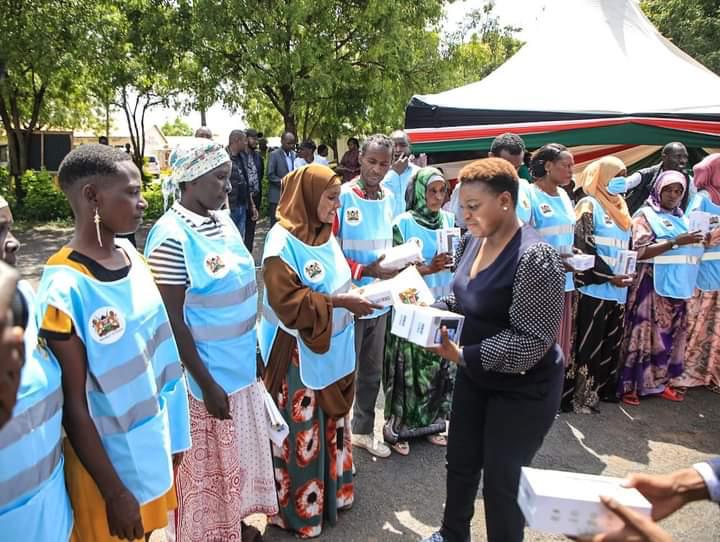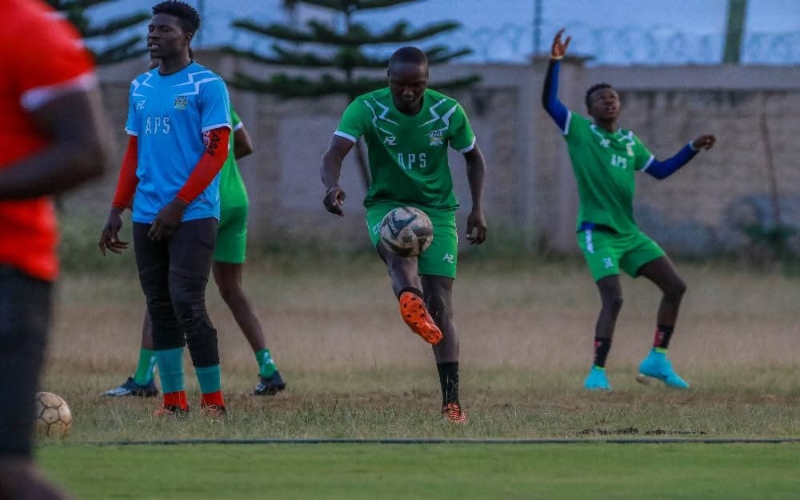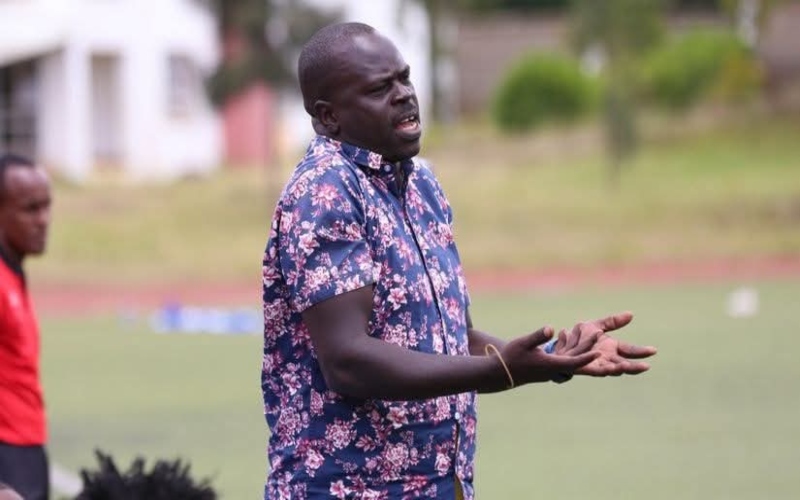Opinion: Unsung Heroes: Community Health Promoters bring hope to northern Kenya

CHPs serve as the eyes and ears of the healthcare system in remote areas. They monitor disease outbreaks, report health trends, and facilitate timely responses from authorities.
The vast deserts of Northern Kenya hold a harsh beauty, yet beneath the scorching sun lies a hidden struggle. Access to quality healthcare remains a distant dream for many communities.
However, a beacon of hope shines through the tireless efforts of unsung heroes: the Community Health Promoters. Last year the president officially launched 100,000 Community Health Promoters (CHPs) who were trained and fully equipped with kits in all 47 counties in the country.
More To Read
- 107,000 community health promoters to get SHA insurance, prompt stipends under new government plan
- KMTC students to start accessing Helb loans after final talks next week
- How Riruta’s upgrade to Level IV hospital is transforming healthcare across Dagoreti
- Nairobi County moves to formalise and regulate childcare sector
- From free to unaffordable: Why more Kenyan women are giving birth at home again
- From hope to despair: HIV patients left behind by Kenya’s health transition
These CHPs were recognised by their county bosses, and their work was appreciated. This event fulfilled the national government’s promise to supply the essential tools, to implement digital solutions, and provide fair compensation for these devoted frontline health workers.
Previously known as community health volunteers, these dedicated individuals are well-equipped to offer both promotional and preventive health care. The change included a shift towards more formal recognition and integration into the healthcare system, ensuring that CHPs are not just assistants but essential pillars of the health infrastructure.
CHPs, who frequently come from the communities they serve, are crucial intermediaries in bridging the gap between entrenched traditional practices and modern medical treatments.
Armed with knowledge and basic medical equipment, they seamlessly integrate into the fabric of their communities, earning trust as confidantes, educators, and frontline healthcare providers.
Their intimate understanding of local customs, beliefs, and languages enables them to effectively communicate health messages, dispel myths, and facilitate the adoption of modern healthcare practices.
The huge distances between settlements and health facilities, and a chronic dearth of healthcare experts, prevent many citizens from receiving needed medical services. CHPs are bridging this gap by bringing healthcare directly to the people.
They traverse long distances, often on foot or using basic transport, to reach the most remote villages, at times even risking their lives. Their presence ensures that basic healthcare services, such as immunisations, maternal and child health care, and management of common illnesses, are within reach for everyone.
They conduct community outreach programmes, teaching locals about hygiene, nutrition, family planning, and the importance of vaccinations.
Moreover, CHPs serve as the eyes and ears of the healthcare system in remote areas. They monitor disease outbreaks, report health trends, and facilitate timely responses from authorities. This surveillance function is critical in preventing and containing the spread of diseases, ensuring public health is safeguarded even in the most isolated regions.
They are also equipped to identify early signs of illness and act as the first line of defence. They can refer patients to health facilities for timely diagnosis and treatment, potentially saving lives and preventing the spread of disease.
Unlike in the past, CHPs now get a small stipend to help them meet their necessities while continuing to serve the community. However, this stipend is frequently low compared to the scope of their job and, on occasion, is paid late, making it unstable for their livelihood.
This discrepancy drives CHPs to seek new sources of revenue, which might distract them from their primary obligations and lower the quality of care they deliver.
The Kenyan government's recent initiative to deploy CHPs across the country is a commendable step. However, continuous investment is needed. Providing adequate training, resources, and incentives will empower these frontline workers to reach their full potential.
CHPs are the cornerstone of accessible healthcare in Northern Kenya. Their dedication deserves recognition and support. By investing in CHPs, we invest in a healthier future for these communities, ensuring a future where quality healthcare reaches even the most remote corners of the country.
Amina Boru is a health record information officer, social changemaker, and programme officer at Northern Frontier Medical Association.
Top Stories Today












































